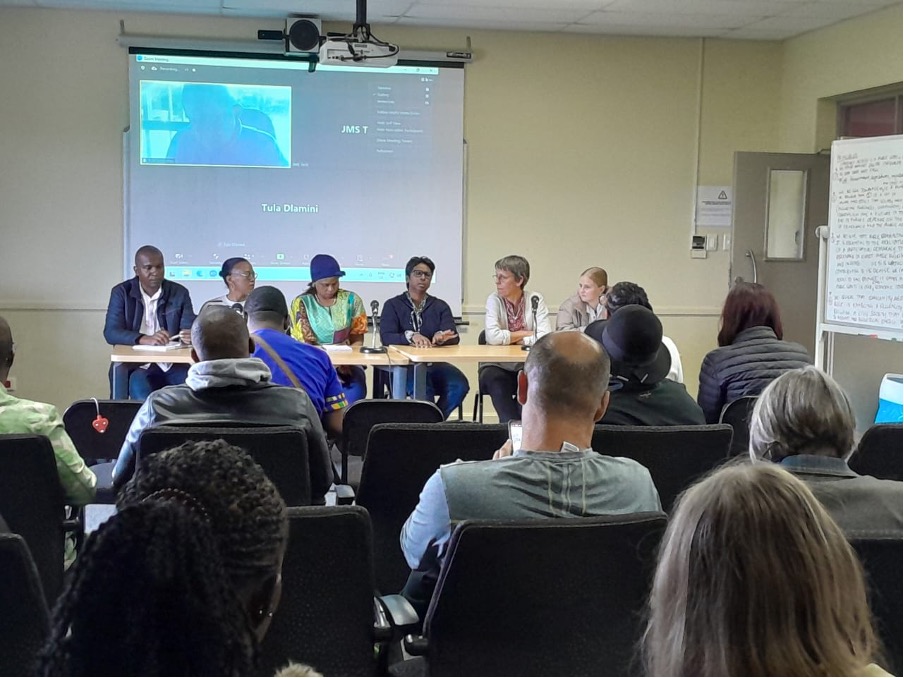By Sindisiwe Tshona and Nosiphiwe Nyangana
Rhodes University’s School of Journalism and Media Studies’ hybrid conference titled Journalism Summit 2024: Seeds of Change – cultivating the future of Journalism in Africa, had over 120 participants from all over the world, including the United States, Nigeria, Kenya, and Gaza.
The final day of the conference, held on Saturday, 6 April, at the Africa Media Matrix, brought together a diverse group of voices to discuss the future of journalism in Africa. During the conference, a Makhanda Declaration was presented, which outlined a vision for journalism’s future rooted in African values and experiences.
After the plenary discussion at 9:30 am, the formal press conference was held at noon with a panel present in front of the audience. On the panel was the chairperson, Rich Mkhondo, who was streaming online and read out the Makhanda Declaration for the press conference. Other panelists included student media representative Kerry Lanaghan; School of JMS head, Dr Jeanne Du Toit; director of the Centre of Journalism at Wits, Dr Dinesh Balliah; lecturer at the School of Journalism and Media Studies (JMS) Thandeka Gqubule-Mbeki, MDDA CEO ShoeShoe Qhu, SANEF chairperson Sbu Ngalwa and lecturer at the RU School of JMS, Taryn Da Vega.
The Makhanda Declaration consisted of principles presented by Gqubule-Mbeki. One of the principles highlighted that Internet access is a public good and a human right; therefore, they stand against digital inequality. This principle stated that the summit panel calls government officials, legislatures, and regulators to start acting now. The main call of this principle was that “Data costs must fall”.
Another principle stated, “We believe journalism and news is a public good, a set of values and ethics that society must invest in.” It carried on to state that journalism has a future in the digital age, and its future depends on the presentation of democracy and the public good.
Out of the numerous principles that were presented, there was one that highlighted the importance of community in forming strong voices. “We believe that community media plays a crucial role in enabling a plurality of voices and building a civil society that can hold power to account and build social cohesion: we call for an increase of direct funding”.
Audience members also participated and contributed by sharing their views on the declaration, resulting in a heated conversation.
In closing the summit, Gqubule-Mbeki concluded, “What would we be if we cannot put an end to the erosion of the slice of the economy led to us, even though we’ve accepted that the advertising model has collapsed and that the industrial age is no longer like it used to be at the foundations of the city that we are willing to innovate.”



